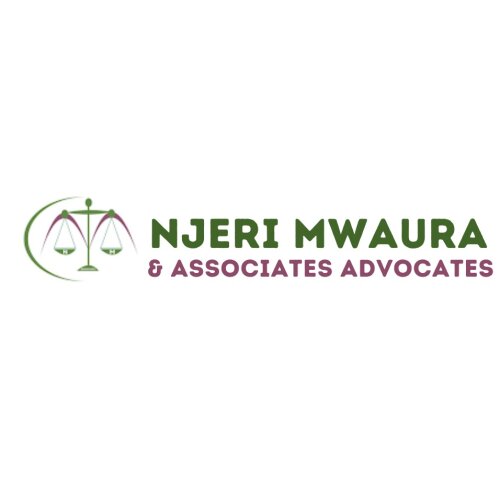Best Foreclosure Lawyers in Ruiru
Share your needs with us, get contacted by law firms.
Free. Takes 2 min.
Free Guide to Hiring a Real Estate Lawyer
List of the best lawyers in Ruiru, Kenya
About Foreclosure Law in Ruiru, Kenya
Foreclosure law in Ruiru, Kenya, concerns the legal process through which a lender-typically a bank or mortgage institution-moves to repossess and sell a property when the borrower defaults on their mortgage payments. This area of law balances the enforcement of security interests by lenders with the protection of debtors' rights. Due to the complexity of the law and the need for a fair outcome to all parties involved, Kenyan law provides specific procedures that must be followed during the foreclosure process. The process adheres to the principles and statutes found within Kenya's Land Act, the Land Registration Act, and the Insolvency Act among other relevant legal provisions.
Why You May Need a Lawyer
There are a number of situations in which hiring a lawyer is beneficial for those involved in a foreclosure in Ruiru. For instance, if you are a borrower facing financial difficulties, a lawyer can advise you on options such as restructuring the loan, seeking a repayment holiday, or negotiating other terms with the lender. If foreclosure proceedings have already commenced, a lawyer can help protect your rights and ensure that all procedures are carried out lawfully. Should there be any grounds for contesting the foreclosure, a legal professional can lay out potential defenses and represent you in court. Additionally, investors or third parties interested in purchasing foreclosed properties should seek legal advice to navigate the complexities of property laws and ensure clean title conveyance.
Local Laws Overview
In Ruiru and Kenya as a whole, foreclosure proceedings must align with the overarching national laws, including compliance with the Land Act and the Land Registration Act. These laws dictate the notices required to be served to the borrower, the waiting periods before taking action, and the actual process of publicly auctioning the property. Lenders are required to obtain court orders to enforce security, except where the parties have agreed otherwise following the amendments to these Acts. Additionally, the Insolvency Act allows borrowers who are facing bankruptcy to seek certain protections and potentially forestall foreclosure proceedings. Understanding local practices and the involvement of local authorities can also be key, given that Ruiru falls under the Kiambu County government's jurisdiction.
Frequently Asked Questions
What are the typical grounds for foreclosure in Ruiru?
Typically, the main ground for foreclosure is defaulting on mortgage payments. However, breach of other loan terms or conditions stipulated in the mortgage agreement can also lead to foreclosure.
How long does the foreclosure process take in Kenya?
The process can take anywhere from a few months to over a year, depending on whether it is contested, the efficiency of the court system, and the actions of the lender.
Can I stop foreclosure once it has started?
It's possible to halt foreclosure by clearing outstanding payments, filing for bankruptcy, or coming to an alternative arrangement with the lender. Legal advice is critical at this stage.
Is it obligatory for a lender to go through court in Ruiru to foreclose?
Yes, it is generally obligatory for the lender to go through the court to foreclose, but there are exceptions where the mortgage contract allows for sale without court intervention upon default.
If my property is foreclosed, will I owe anything after the sale?
If the property sells for less than the amount owed, the lender might have the right to a deficiency judgement, requiring you to pay the balance. However, the practicality of pursuing such a judgement varies, and legal counsel can provide more personalized advice.
Are there any government programs to help those facing foreclosure in Kenya?
There may be government programs available, particularly those aimed at debt relief and restructuring. A legal advisor or local government office might provide further guidance on available programs.
Can the foreclosed property be sold for a price below its market value?
A foreclosed property can potentially be sold for less than its market value, especially if it’s sold at auction. This however needs to carefully adhere to the law and regulations to prevent undervaluation.
Who can bid in a foreclosure sale in Ruiru?
Any member of the public with the financial capability can bid in a foreclosure sale, so long as they comply with the procedures set out in the auction announcement.
Can I buy a foreclosed property directly from the bank without an auction?
It is possible, though less common, to buy a foreclosed property directly from a bank if the bank repossesses the property and opts to sell it through private treaty sales.
Where can one find listings for foreclosure auctions in Ruiru?
Listings for foreclosed properties are commonly published in local newspapers and on the websites of auctioneers or financial institutions.
Additional Resources
For those seeking assistance with foreclosure in Ruiru, helpful resources include the local Land Registry office, the Kenya Legal and Ethical Issues Network on HIV and AIDS (KELIN), which provides legal aid for property-related issues, and the Law Society of Kenya, which can offer referrals to qualified lawyers. Consulting the website of the Judiciary of Kenya can also provide valuable legal insights and resources.
Next Steps
If you need legal assistance in foreclosure, start by gathering all relevant documentation, including any communication from your lender, your mortgage agreement, and financial records. Next, contact a lawyer experienced in property and foreclosure law to discuss your case and explore your options. Remember that time is of the essence in these matters, and seeking prompt legal advice can be critical to achieving a favorable outcome.
Lawzana helps you find the best lawyers and law firms in Ruiru through a curated and pre-screened list of qualified legal professionals. Our platform offers rankings and detailed profiles of attorneys and law firms, allowing you to compare based on practice areas, including Foreclosure, experience, and client feedback.
Each profile includes a description of the firm's areas of practice, client reviews, team members and partners, year of establishment, spoken languages, office locations, contact information, social media presence, and any published articles or resources. Most firms on our platform speak English and are experienced in both local and international legal matters.
Get a quote from top-rated law firms in Ruiru, Kenya — quickly, securely, and without unnecessary hassle.
Disclaimer:
The information provided on this page is for general informational purposes only and does not constitute legal advice. While we strive to ensure the accuracy and relevance of the content, legal information may change over time, and interpretations of the law can vary. You should always consult with a qualified legal professional for advice specific to your situation.
We disclaim all liability for actions taken or not taken based on the content of this page. If you believe any information is incorrect or outdated, please contact us, and we will review and update it where appropriate.









